UN envoy calls racism in Switzerland a reality
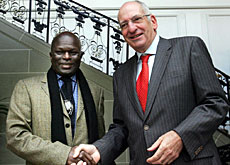
The United Nations special rapporteur on racism, Doudou Diène, has observed that Switzerland suffers from racism, discrimination and xenophobia.
After five days of meetings with government ministers, community groups and other parties, Diène said that racism was being “trivialised”, especially in political circles.
The UN envoy explained in Bern on Friday that although the Swiss authorities recognised the existence of racism and xenophobia, they did not view the problem as being serious.
Diène pointed out that representatives of minority communities said they experienced serious racism and discrimination.
The special rapporteur has looked into racism in ten countries to date and his interim report on Switzerland will be presented to the UN’s Human Rights Commission in March.
“My preliminary conclusion is that yes, racism, discrimination and xenophobia are present in Switzerland. I will be in a position to evaluate the depth of that racism when I have reviewed all the documentation I have requested to formulate my final report,” Diène said.
Police violence
The UN envoy visited a detention centre in Basel and spoke to detainees. He said that police treatment of non-nationals, particularly people of black African origin, was very worrying.
“I noted the repeated and strong presence of xenophobia in certain institutions, such as the police,” he added. “I have gathered information about the high level of racially-motivated physical and verbal violence directed towards certain groups.”
Diène also expressed concern about the recent hardening of legislation related to foreigners and asylum, championed by Justice Minister Christoph Blocher.
“The marked tendency to criminalise the question of immigration and asylum and the treatment of this question purely from a security point of view is a troubling indicator,” he said.
The special rapporteur described his meeting with Blocher – a member of the rightwing Swiss People’s Party – as frank and friendly. He said that the minister answered all his questions and that on each point Blocher said his policies were not motivated by racism.
Focus on foreigners
Swiss political and public debate is marked by a strong preoccupation with the issue of foreigners, their treatment and definition, and policies relating to them, Diène observed. He said this could be seen as an indicator of xenophobia.
“The absence of national legislation against racism and discrimination is another indicator, leaving victims with no means of complaint or redress,” he said.
“Although Switzerland has set up institutions and commissions to oversee the questions of foreigners, asylum and racism, these bodies lack the means and authority to act to transform the situation.”
Diène said he attempted during his visit to verify whether there was a tendency to trivialise racism and xenophobia in Switzerland.
He observed that the racist and xenophobic platforms that in the past were the territory of extremist parties were gradually and profoundly shaping the democratic political programme.
Racist platforms
“For electoral reasons, racist concepts, the racist political platform and to a certain extent racist violence are being trivialised because the democratic parties are letting their guard down.”
Diène said that after black Africans, people from the Balkan states were the next group most affected by discrimination.
During his visit to Switzerland, he travelled around the country and met representatives from the African, Balkan, Muslim, Jewish and Asian communities.
His final report, to be published next year, will reflect the contribution of the government ministries, along with the views of the minority communities and specialist bodies.
“This is an extremely complex situation and I will not write my report in the spirit of a judge but with a view to helping countries to find solutions to the serious problems they are faced with,” he said.
Racist incidents in Switzerland in 2005: 89 reported so far, according to the Foundation against Racism and Anti-Semitism.
These incidents include verbal racism (32 cases), Holocaust denial, graffiti or vandalism, assault, fire bombings and refusals to grant citizenship.
In 2004, there were 105 major reported incidents.
The year before, that number reached 116, and 128 in 2002.
The UN special rapporteur on racism carries out visits to various states to see if there are problems related to discrimination.
After these visits, he submits a report to the UN’s Commission on Human Rights.
In 2002, Switzerland invited all the UN’s special rapporteurs to visit the country and file their conclusions.

In compliance with the JTI standards
More: SWI swissinfo.ch certified by the Journalism Trust Initiative
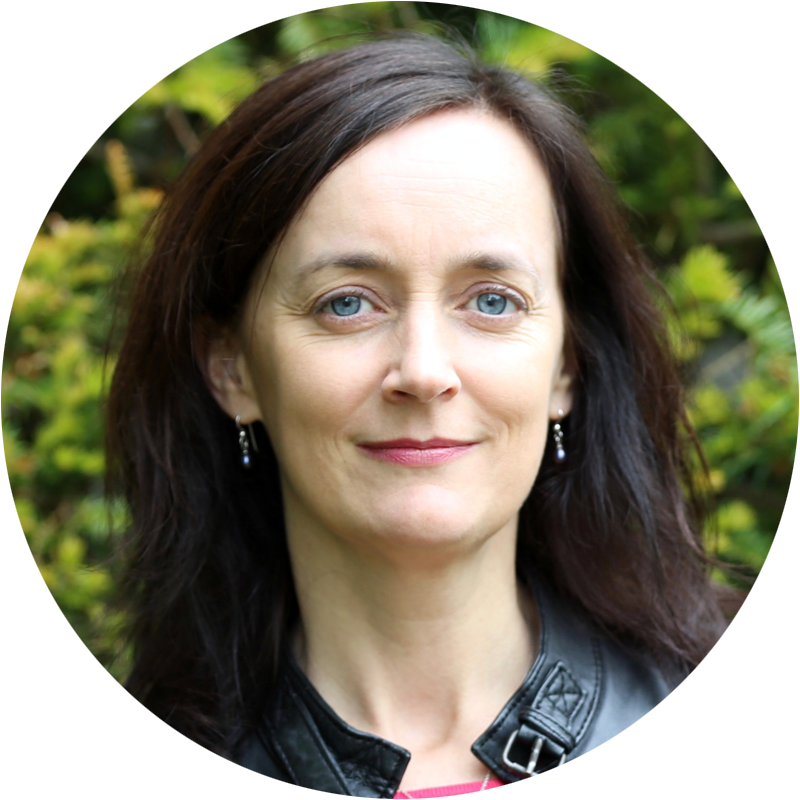
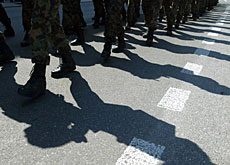
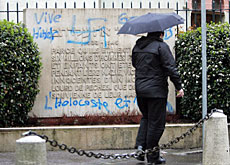
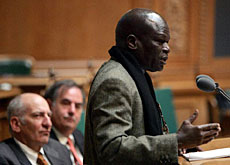
You can find an overview of ongoing debates with our journalists here. Please join us!
If you want to start a conversation about a topic raised in this article or want to report factual errors, email us at english@swissinfo.ch.